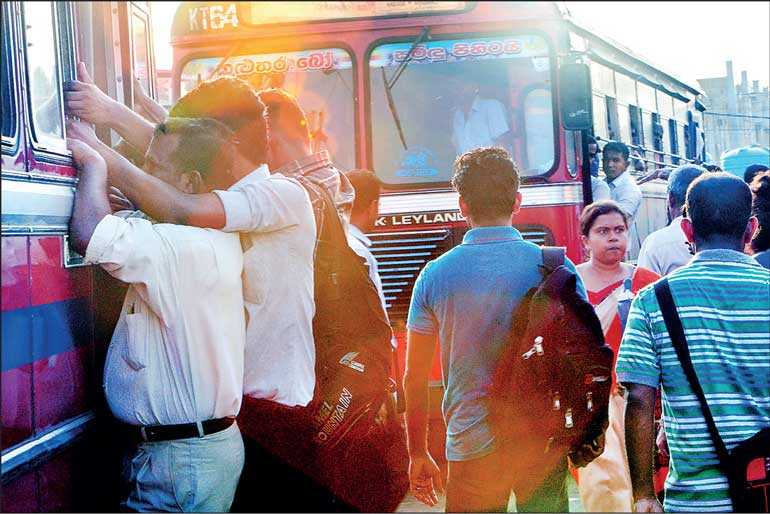Saturday Feb 14, 2026
Saturday Feb 14, 2026
Tuesday, 17 December 2019 00:00 - - {{hitsCtrl.values.hits}}

Strangely, the last Poya day was very quiet in our area with no crisscrossing sounds through loudspeakers and hopefully this is an implied understanding among those responsible for Poya activities. 
The purpose of this article is not about the sounds but the intensity of volume that can be not only a nuisance but hazardous for hearing in the case of prolonged exposure which is the situation in Sri Lanka in many places and occasions.
Much has been said and written on paintings being done throughout the island that have prevented the poster war in available walls in the cities. This is certainly a lovely gesture from the youth for which the majority of the people in Sri Lanka is wholeheartedly supporting. It has brought all communities together and the work is done voluntarily – a pleasant site to see after decades other than where people gather when calamities occur.
These paintings, intentionally or otherwise, depict what the tourism industry is trying hard to project – i.e. the diversity in our country to potential tourists. Sri Lanka is capitalising on three pillars viz. Authenticity, Diversity and Compactness in order to differentiate from the competition in the tourism industry. The paintings also remind us of unique designs of truck art in Pakistan and North Norwegian house colours
With this momentum in volunteering and team work, much can be achieved in the future. Sound pollution is widely spoken but a few want to do something constructive about it. In an article in April this year speaks about drivers of buses having loud horns and using them at their whims and fancies specially when approaching bus halts and caught up in traffic through sheer frustration.
There was a short period when the Police became active on controlling sound pollution by drivers of buses and the public. The video of a Traffic Police officer checking the loud siren like horns and getting them removed went viral which earned much praise by the public but that was an isolated action.
The law spells out the sound at the perimeter of industry to be below 80 decibels. Normal conversation is about 60 dB, a lawn mower is about 90 dB, and a loud rock concert is about 120 dB. In general, sounds above 85db are harmful, the studies show.
It is reported that in November 2007, there has been a Supreme Court decision stating the right of one party to use loudspeakers was weighed against the annoyance, disturbance and harm caused to those other parties who are compelled against their will to listen to the amplified sounds which emanate from these loudspeakers.
The Court decision is said to have interpreted in such a way that even for the validity of Police permits allowing use of loud speakers in various places as well as the need to protect the environment and safeguard public health.
The sound pollution beyond permissible level has no limits from amplified vehicle horns, heavy base music in trick shows, lottery sellers, mobile bakery sellers to festival sales shops and many other places. The writer is aware of the need for sounds in music concerts, parties and weddings but that again has no sound management as many would agree.
Weddings are a good example. It is true when the dancing begins and everyone is invited to the floor, the sound increases to match the mood of the participants. Most professional bands and DJs know this while the others immediately convert the wedding into a musical concert due to which the relatives who meet after years have to scream for other to hear sitting next or stay as zombies until the band stops playing in between songs.
It seems this has gone out of control and if this is not corrected at this juncture, the sound pollution will be a major environmental hazard in this country affecting adversely the image of Sri Lanka in the eyes of foreign visitors specially the high-end tourists. There are ground level examples. When the writer observed a sales girl increasing the volume of the sound equipment in front of a footwear shop next to a medical centre and when requested to reduce volume, the owner objected and not in polite language.
It was only when attempting to call the Police that they backed out and reduced the volume knowing that the political culture has changed since election and Police which is just 300 metres away might actually act.
On another occasion sometime last year, the DJ music during a basketball tournament was so loud spreading across hundreds of families living in police quarters in the surrounding area and no one appeared to be protesting despite the infants and ailing elders living in these quarters, not to mention how it may have affected the players’ performance while playing. The name board of the environment division of the Police was in the vicinity.
It was also observed at children’s party where the DJ went almost berserk with the sounds where the writer had to tell the parents that ear drums of the children were at risk but the DJ takes control as usual.
Apart from possible ear damage, studies have shown that noise pollution is linked to poorer human health and the experts say it can also affect wildlife disrupting their modes of communication. In Wellington the people who were interviewed by RNZ were firmly in support of postponing an annual fireworks event if the whale was still in the harbour on that day.
This matter is controversial in religious spheres. Therefore, the political sensitivity is understood. Nevertheless, some initiatives could be taken towards mitigating noise pollution through a dialogue with religious institutions unlike Police taking stern action on unnecessary tooting of horns without any reason in a traffic and getting the special horns and amplified sound systems removed from buses and three wheelers respectively. Needless to say that in addition to public nuisance, it is the level of indecency which the people in this country should openly deplore.
In the second phase authorities require technological support and perhaps adjustments to the gazettes to respect public complaints on sound pollution as the law demands the violation in terms of exceeding decibels and constant or regular use. Like the equipment to verify speed levels, there should be equipment given to the Police to check the sound levels especially in response to complaints.
We are into the festive season and most shops will have sounds to shout out the special offers and discounts given. Is it the advertising, PR, word of mouth or the loud noise that would attract the public to the shops? Something we may ask a communication expert to comment.
Notwithstanding all these, a legislative demand on sound management is long overdue and any measure that is taken on this citing scientific evidence will take Sri Lankan society a long way, and there is no other better time than this to implement this.
(The writer is a former diplomat, tourism official and currently an academic.)